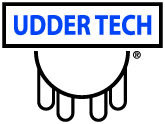Dairy checkoff-led efforts are changing lactose intolerance attitudes and behaviors among physicians, resulting in an additional 276 million pounds of increased consumption of dairy among self-described lactose intolerant consumers, according to a health and wellness study conducted in September 2011. The Milk Opportunity Study, funded by the dairy checkoff, reveals that family physicians who recommend dairy alternatives to lactose intolerant patients have decreased by 44 percent since 2008. In addition, supermarket scanner data indicates that 1.4 million more households are purchasing lactose-free milk.
“This is encouraging news, as it shows progress in bringing lactose intolerant consumers back to dairy,” said Paul Rovey, Arizona, dairy producer and chair of Dairy Management Inc., which manages the national dairy checkoff. “One way to help promote ‘dairy-first’ solutions is to educate health professionals who provide counsel and guidance to patients.”
To that end, the checkoff launched physician outreach programs to return to the dairy category 53 million adults who claim symptoms of lactose intolerance and are restricting or avoiding dairy consumption.
As part of a partnership with McNeil Consumer Healthcare, a division of Johnson & Johnson Inc., which supplies the natural-source lactase enzyme found in Lactaid, the checkoff aims to reach 10,000 family physicians with lactose-free milk and Lactaid supplement education information and trial opportunities. Another effort engages state and regional dairy promotion organizations to reach 25,000 primary care physicians with information and trial opportunities.
The effort followed a 2010 checkoff survey revealing that family physicians and primary care physicians tend to advise patients with real or perceived lactose intolerance to avoid dairy. PD
—From DMI news release






